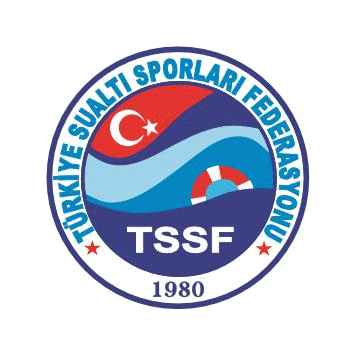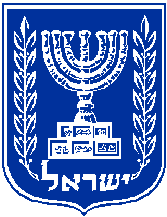template for proposals for new undergraduate courses ------------------------------------------------------------------------------------------
TEMPLATE FOR PROPOSALS FOR NEW UNDERGRADUATE COURSES
-----------------------------------------------------------------------------------------------------------------------------------------------------
The attention of proposing Schools is drawn to the Trinity Inclusive
Curriculum website for good practice guidelines concerning teaching,
assessment and supervision of students:
http://www.tcd.ie/CAPSL/TIC/guidelines/
1. Summary Information (coversheet)
1.1 Title of Course
1.2 Award title (e.g. BA, BSc, Dip) and exit award (if applicable)
1.3 Award type (major, minor, special purpose or supplementary)
1.4 NFQ level
1.5 Course ECTS volume
1.6 Course group (e.g., Foundation, UG, UG validated, UG visiting)
1.7 Proposing school (or lead school and participating schools and/or
partner institutions)
1.8 Faculty name(s)
1.9 Accrediting body (where relevant for professional courses) and
professional status
1.10 Course duration and mode of delivery (full time, part time,
online)
1.11 Course start date
1.12 Proposed student numbers (EU and non-EU)
1.13 Course co-ordinator
1.14 Date of approval of course proposal by School Executive Committee
1.15 Date of approval of course proposal and financial analysis by
Faculty Dean
1.16 Date of course proposal version being submitted to the
Undergraduate Studies Committee
1.17 Date of submission to Council
1.18 Expected ‘go-live’ date in SITS (3 weeks after Council approval
date)
1.19 Names of three potential external reviewers
2. Academic Course (main body of proposal)
2.1 Introduction and course rationale and aims (500 words max.)
2.2 Compatibility with School strategic plan (150 words max.)
2.3 Alignment with College strategic plan (150 words max.)
2.4 Programme learning outcomes (10 approx.) and programme learning
outcomes associated with exit award, if any.
2.5 Course structure and content, including
2.5.1 Table(s) showing core, elective and optional modules for each
year (please provide the course structure showing modules, ECTS
values, breakdown of student workload (contact hrs, assessments,
self-study), and assessment methods in the context of the academic
year structure) (depending on duration of course, it may be necessary
to provide a separate table per course year) (use template A);
2.5.2 Assessment and progression: specify the harmonised progression
model applicable for each year of course and confirm how the degree
classification is to be calculated.
2.6 Relationship to existing undergraduate courses (e.g., module
sharing, shared subjects) (200 words max.)
2.7 Staffing requirements and arrangements (e.g., in-school, service
teaching, casual lecturers) (200 words max.)
2.8 Does the course in its content and curriculum enable progression
to postgraduate study and research? (200 words max.)
2.9 Does the course exploit and/or develop research distinction in the
providing school(s) as a basis for research-based teaching and
learning? (200 words max.)
3. Recruitment / Admission
3.1 Proposed annual intake (EU and non-EU quotas)
3.2 Specific course entry requirements, if any (e.g. H6 in
Mathematics)
3.3 Details of similar courses offered at other institutions in
Ireland or the U.K.
3.4 Evidence of demand for the course – please comment on
*
the outcome of any market research that has been undertaken
*
consultation with potential employers or professional bodies
*
expected career destinations and job types
3.5 Expected student profile (e.g. school leavers, mature students,
international students) and entry mechanism (e.g., CAO, direct entry)
4. Administration, Library and Student Services
4.1 Arrangements to support the administration of the programme (if
shared across more than one school, confirm where responsibility for
course administration falls)
4.2 Timetabling arrangements should be investigated and assurance that
the new course can be delivered within existing timetable constraints
is necessary
4.3 Indicate any specific/additional Library requirements (these must
be discussed with the relevant Subject Librarian for your School ahead
of submitting the proposal for USC)
4.4 Outline student services requirements in the contexts of projected
numbers and expected student profile.
5. Quality Assurance
5.1 Name of school or course committee that will oversee course
matters
5.2 External examiner arrangements (are any new external examiner
positions required?)
5.2 Plans for student evaluation at module and course level
Appendices to course proposal, to include:
A Module descriptors: for each module, provide a module descriptor
with the following information (use template B):
*
Module title and code (if available) and indicate if it is
compulsory or elective (allowing for students to take a minimum of
10 ECTS outside their main course of study)
*
Module coordinator and other lecturer(s)
*
ECTS value
*
Contact hours and student workload (e.g., lecture hrs, seminars,
labs, study and assessment)
*
Module pre-/co-requisites
*
Module aims and content
*
Module learning outcomes
*
Mode of delivery and methods of teaching and student learning
*
Assessment components (include details of each summative
assessment component, their duration/word count and weightings,
and details of any formative assessments)
*
Indicative reading list, if information is available (4-5 titles
max.)
B Calendar entry for the University Calendar Part 2
C Agreements from the relevant Heads of School in relation to shared
modules and service teaching
D Mapping of module learning outcomes to programme learning outcomes
(use template C)
E Costs –Income and expenditure analysis prepared with the Faculty
Financial Advisor
Updated 29/05/17
2
 6 TO 12 MONTHS BEFORE THE HEALTH FAIR
6 TO 12 MONTHS BEFORE THE HEALTH FAIR  LAS TRES PERSONAS INGRESADAS EN EL HOSPITAL DE NAVARRA
LAS TRES PERSONAS INGRESADAS EN EL HOSPITAL DE NAVARRA COLEGIO ALGARROBOS CIENCIA Y TECNOLOGÍA – 1° SECUNDARIA 1
COLEGIO ALGARROBOS CIENCIA Y TECNOLOGÍA – 1° SECUNDARIA 1 MADDOCKS DELEGATIONS AND AUTHORISATIONS S13 INSTRUMENT OF DELEGATION OF
MADDOCKS DELEGATIONS AND AUTHORISATIONS S13 INSTRUMENT OF DELEGATION OF OBRAZAC SIŽEA PROJEKTNE IDEJE1 NAZIV PREDLOGA PROJEKTA ORGANIZACIJA (PREDLAGAČ
OBRAZAC SIŽEA PROJEKTNE IDEJE1 NAZIV PREDLOGA PROJEKTA ORGANIZACIJA (PREDLAGAČ ZAMÓWIENIE ŻALUZJE PLISOWANE (PLISY) COSIMO SL NR ……………… ZAMAWIAJĄCY
ZAMÓWIENIE ŻALUZJE PLISOWANE (PLISY) COSIMO SL NR ……………… ZAMAWIAJĄCY “ENGELLI DALICI EĞITMENI VE ENGELLI DALICI EĞITMEN ASISTANI SEMINERI
“ENGELLI DALICI EĞITMENI VE ENGELLI DALICI EĞITMEN ASISTANI SEMINERI PRIME MINISTER’S OFFICE COMMUNICATIONS DEPARTMENT JULY 21 2009 TRANSCRIPTION
PRIME MINISTER’S OFFICE COMMUNICATIONS DEPARTMENT JULY 21 2009 TRANSCRIPTION 10 PRELIMINARIES CONFIGURATION SPACE TANGENT SPACE DEGREE OF FREEDOM
10 PRELIMINARIES CONFIGURATION SPACE TANGENT SPACE DEGREE OF FREEDOM